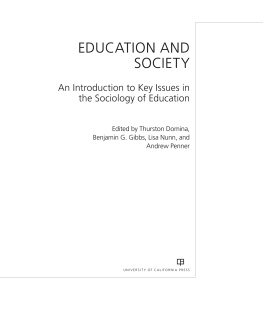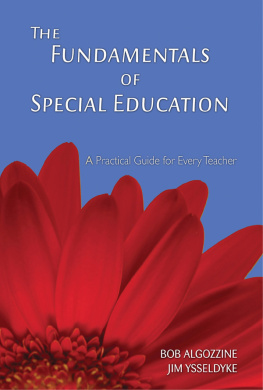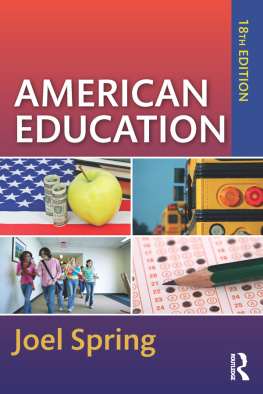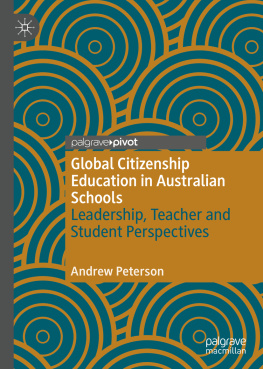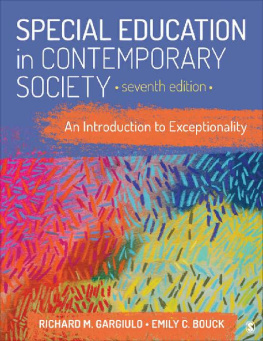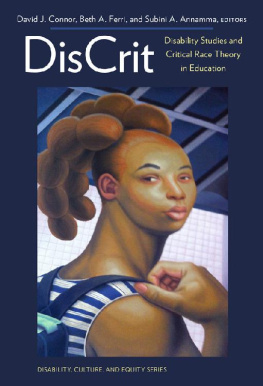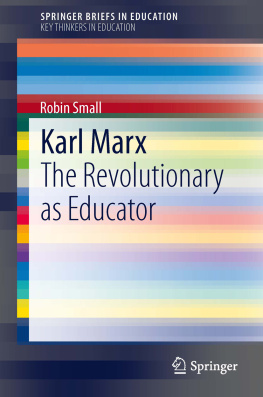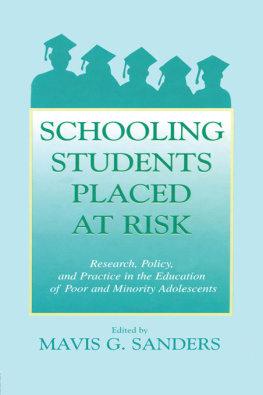Editors Introduction
E ducation is a vast institution in contemporary societies. Virtually every child on earth today will be exposed to some form of formal schooling. And that childs education will likely play a central role in organizing her development and social identity. As she grows, her education will likely influence her labor market experiences, where and how she lives, her marriage and family-formation decisions, and even her health and life expectancy.
If youre reading this book, you no doubt have a strong personal understanding of schooling as an institution and of its profound social importance. After all, if your educational experience is typical, you spent some fifteen thousand hours in school between the ages of five and eighteen. In the process, you likely worked your way through reams of photocopied worksheets, bubbled in the answers to thousands of multiple choice questions, and negotiated countless complex social encounters in locker-lined hallways and lunchroom lines. And, if youre reading this book as a college student, you likely experienced some measure of success in the process. Like nearly 90 percent of contemporary young people, you earned a high school diploma; and like more than half of those high school graduates, you made the leap into postsecondary education.
Because your experience gives you considerable expertise on education as an institution, this textbook works a little differently from most of the textbooks you encounter. Rather than trying to introduce you to an established and settled body of knowledge (as an anatomy textbook might), or training you in a set of skills (as a computer science textbook might), this book invites you into an ongoing conversation about education and society.
This conversation takes place across a range of venues, including academic journals, conferences, research talks, andincreasinglysocial media. One venue that has been particularly important for the development of this book is a relatively small and informal conference that occurs every spring at a state park in Northern California. Over two days, at the Sociology of Education Associations annual meetings, some seventy to eighty experts on the sociology of education think through dozens of papers and talk and laugh through a handful of meals together. In the process, we share both the excitement of scientific discovery and the entirely different excitement of intense debate. We poke at one anothers ideas and explore one anothers data in an attempt to broaden our understanding of educationan institution about which we all care deeply.
We have tried to capture some of the spirit of those meetings in this book. Each of the books chapters and case studies is meant as an introduction to the ideas and evidence that have been formative to the authors ongoing understanding of education as a social institution. As such, each chapter and case study has a viewpoint and an argument to make. Youll likely find it easier to agree with some than others. And in fact, if you read carefully, youll likely find places in which the authors of chapters or case studies disagree with one another. That is, we think, as it should be.
Education is an incredibly complex, and indeed contradictory, institution in contemporary life. We expect schools to provide opportunities to all, even as they prepare students for highly unequal adult societies and legitimate that inequality. We want schools to teach students how to cooperate even as we ask them to structure hugely influential social competitions. We ask schools to establish and reinforce a shared body of social knowledge, even as they recognize and respect a pluralistic societys diversity of views and experiences. Given the contradictions inherent in contemporary mass education, it is our view that its appropriate that the sociology of education should also be a contentious and multifaceted field of study.
That said, you will also notice three common threads that run through each of the chapters and case studies. First, central to the sociology of educationand, indeed, all sociologyis the assumption that the social world is knowable. While at any given moment each of us has a limited view of our social setting, sociologists have developed a wide range of qualitative, quantitative, and historical methods that make it possible to subject the interactions, structures, and interpersonal relationships that we collectively describe as society to empirical scrutiny. By applying this social scientific view to education, we seek to understand the complex relationship between education and social inequality, the ways in which schools change, and the ways in which changing schools then change society.
Second, the authors of all these chapters and case studies are motivated by the belief that the act of collecting and interpreting information about the world has the potential to make a more just and equitable society. As a result, the authors dedicate considerable attention to providing an accurate empirical representation of schools and their social role in contemporary societies. The word empirical is important here. Sociology thinks of itself as a social science. Consequently, sociologists are committed to producing knowledge that is reproducible and transferable across time and space. We draw upon theoryand indeed our own experiencesto articulate hypotheses. But we also work hard to collect data and subject our hypotheses to rigorous tests. Thinking carefully about the evidence assembled here can shed light on your own educational experiences, the social processes that explain them, and how they compare to those of your peers.

